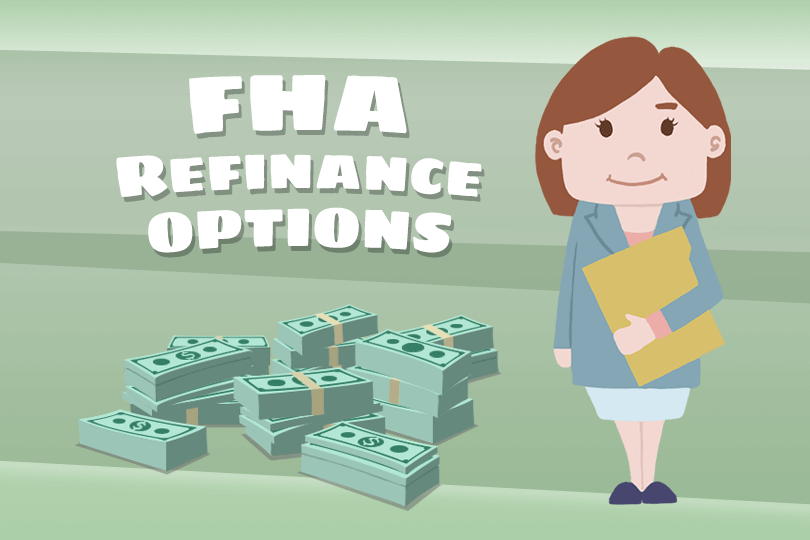Cash-Out Refinance: The Pros and Cons
January 16, 2021
What Is It?
A cash-out refinance replaces your current mortgage for a new one with a principal that is higher than the amount you owe, which allows you to keep the difference in cash. You may also be able to lower your interest rate or adjust the length of your loan term, but the primary purpose of a cash-out refi is to use your home equity to get cash in hand.
The Pros
- Immediate cash in hand: A cash-out refi’s main benefit is that it converts your home equity into liquid assets. You can therefore use the money you have available to fund any number of investments, whether it is home renovations or medical expenses. If you plan out how to use the equity in a responsible way, you can increase the value of your home and build equity in the long run.
- Consolidation of debt: Many borrowers use a cash-out refinance to combine all their high-interest loans, such as student loans and credit card debt, they carry in other places into a single mortgage. This helps to manage finances with a single monthly payment, and mortgages traditionally have lower interest rates compared to other personal loans. Keep in mind, however, that your house will become collateral.
- Tax credits: When used for home improvements, the interest on a cash-out refinance is tax deductible. If used any other way, the interest is tax-deductible up to $50,000 for an individual or $100,000 for a couple. You always should check with your tax advisor for current deductibility and updated laws.
- Higher interest rates: Cash-out refinances are always riskier than other types of refinances because you are borrowing more than what you already owe on the house. And with greater risk comes a higher interest rate.
- Extra costs: Like any other refinance, a cash-out refi requires the borrower to pay closing costs. There is also a second appraisal required for this option, which is a cost you will need to take on. Additionally, borrowers need to pay interest on the extra cash that comes with such a refinance, adding to the cost of the loan.
- Higher risk: The more equity you liquidate in your home, the more risk you take on if the property values decrease. Depending on what you need cash for, it might not be the best idea to drain the equity you have built on your house.
If you decide to go ahead with a cash-out refinance, the amount of additional cash you can borrow will vary based on several factors. The amount of money that you can borrow depends on the amount of equity that has been built up in the home's value. For example, to be eligible for an FHA cash-out refinance, borrowers will need at least 20 percent equity in the property based on a new appraisal.
If you have immediate and important expenses coming up, it may be worth looking into using some of the equity in your home. Talk to your loan officer to see of a cash-out refinance is the right step for you.
------------------------------
RELATED VIDEOS:
Obama Mortgage Is the Home Affordable Program
Principal Payments and Your FHA Loan
Living in a Single Family Home

FHA Loan Articles
February 17, 2025The federal government backs FHA home loans, which allows participating FHA lenders to offer lower down payment options and more lenient credit requirements. How much do you really know about your FHA home loan options and how they compare to other mortgage choices?
February 13, 2025For many college graduates, student loan debt is a concern. A common question is how this debt impacts the ability to buy a home. This Q&A explores the relationship between student loans and FHA loan approvals. How much do you know about how your student loan debt affects your ability to be approved for a mortgage?
February 12, 2025Choosing between FHA and conventional home loans can be daunting for some first-time home buyers. What are the concerns between these two programs, and what does each one offer the borrower? We examine some of the key issues in our question-and-answer session about FHA mortgages versus conventional loans.
February 11, 2025Established in 1934 as part of the National Housing Act, the FHA's primary mission is to stimulate the housing market by providing mortgage insurance to lenders. This insurance reduces the risk associated with lending to borrowers who may otherwise be considered higher risk, encouraging lenders to offer more favorable terms, such as lower down payments and more flexible credit requirements. A key element of the FHA program is its commitment to fair housing, which is deeply rooted in the Fair Housing Act.
February 10, 2025How much do you really know about the home buying process? One major factor in protecting your new investment is knowing how the title search process works and why you need to have one done. This quiz will assess your comprehension of what a title search entails, why it's so important when using an FHA loan, and how it protects you as a buyer. From identifying potential liens to guaranteeing clear ownership, a title search plays a critical role.







